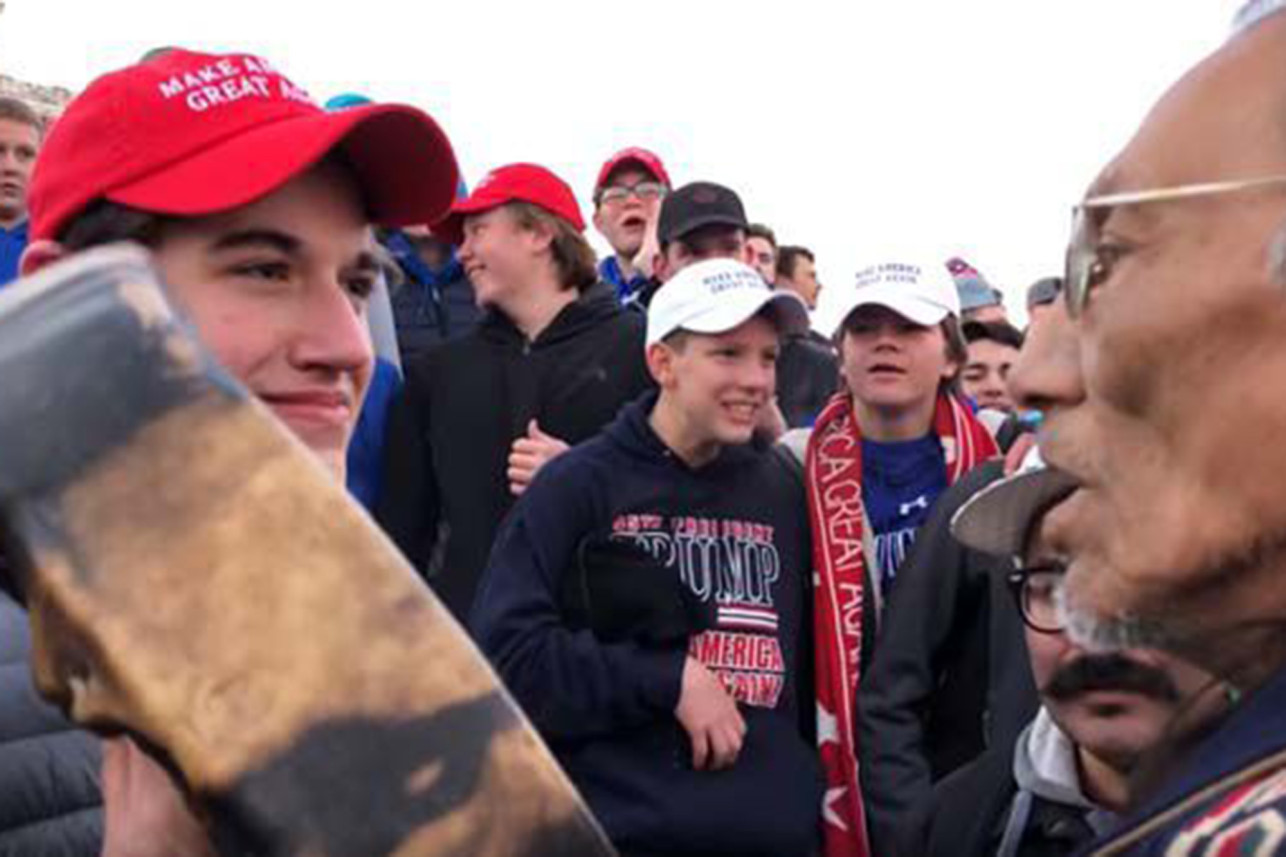Hand over your cash: how US cops commit highway robbery
US police already have an image problem after the Ferguson riots. This won't help improve it

A free daily email with the biggest news stories of the day – and the best features from TheWeek.com
You are now subscribed
Your newsletter sign-up was successful
New York - The cop stops the driver for a trivial offence - having tinted windows in a pick-up truck, for example, or failing to indicate early enough before making a lane change, or following the car in front too closely.
He issues a ticket but instead of heading back to his patrol car, he asks the driver if he has illegal drugs or any money on board and, whatever the answer, whether he can search the car.
If the driver say “No” to the search, and even if there is no probable cause of criminal activity, the cop tells the driver to stay put while he radios for a drug-sniffing dog.
The Week
Escape your echo chamber. Get the facts behind the news, plus analysis from multiple perspectives.

Sign up for The Week's Free Newsletters
From our morning news briefing to a weekly Good News Newsletter, get the best of The Week delivered directly to your inbox.
From our morning news briefing to a weekly Good News Newsletter, get the best of The Week delivered directly to your inbox.
No drugs are found. But the driver is carrying cash. The cop takes the cash. No criminal activity is claimed, no arrest made, no warrant issued. The cop just takes it.
Highway robbery? Technically, no.
The cop has taken the money under a “civil forfeiture” programme with roots, oddly enough, in ancient British Admiralty law to do with unpaid debts.
Victims may sue to get their money back, and some do. But under this strange law, the burden is on the motorist to prove that the cash he was carrying was not part of a drug trade, proceeds of a robbery or intended as a donation to al-Qaeda.
A free daily email with the biggest news stories of the day – and the best features from TheWeek.com
To encourage victims not to call a lawyer, the cop asks them to sign a document promising that they will not be prosecuted if they disclaim ownership of the money. A remarkable number of drivers are so afraid of the police – remember, this is America, where 400 people are killed by armed cops every year - that they do just that.
Can all this be true?
News that America has a problem with its police culture – beatings, shootings, racial bias, charging around in armoured cars with machine-guns and combat gear - has gone mainstream since the riots in Ferguson, Missouri last month which followed the killing by a policeman of an unarmed black teenager.
But now we learn of traffic cops driving around hunting for wads of cash to grab on the flimsiest of excuses and under the most perverse of legal cover.
There is no doubt of the truth. The Washington Post today concludes a three-part investigative series that proves it beyond reasonable doubt. The paper had no trouble in finding police officers - and private companies that train them in the dark arts of “highway interdiction” - prepared to boast about how much money they take.
It all goes back to the terror attacks of 11 September 2001, the Post explains, when "the government called on police to become the eyes and ears of homeland security on America’s highways.
"Local officers, county deputies and state troopers were encouraged to act more aggressively in searching for suspicious people, drugs and other contraband. The departments of Homeland Security and Justice spent millions on police training.
“The effort succeeded, but it had an impact that has been largely hidden from public view: the spread of an aggressive brand of policing that has spurred the seizure of hundreds of millions of dollars in cash from motorists and others not charged with crimes. Thousands of people have been forced to fight legal battles that can last more than a year to get their money back.”
The Post found that several private companies had formed to earn millions of dollars from Homeland Security to train officers in how, essentially, to terrify and bamboozle drivers into submission and hand over their cash. They also devised “private” intelligence services with which a cop could follow cars and drivers and pass on information to other cops on internet sites without going through official channels. The cops also post pictures of their “scores” on these sites.
The American police have long used traffic tickets as a way of filling local county coffers from which they draw their wages, a practice which itself quite obviously encourages them to pursue money rather than justice.
But “aggressively” combing America’s highways for alleged terrorists turns out to have opened up a whole new opportunity. There have been 61,998 cash seizures made on highways and elsewhere since 9/11 without search warrants or indictments, bringing in more than $2.5 billion in total.
“Some police advocate highway interdiction as a way of raising revenue for cash-strapped municipalities,” reports the Post.
Among the victims the paper spoke to were three drivers with perfectly good reasons to be carrying cash. One was on his way to pay for a second-hand car, another was carrying money raised in a church collection plate, a third was a Chinese-American restaurateur with $75,000 neatly bundled in napkins. He was on his way to close a deal for a new restaurant when the money was confiscated.
Seizing assets from criminals goes back to a 1970 law allowing forfeiture of assets of convicted drug dealers: boats, planes, flashy cars, apartments in Miami and so on.
Over the years the practice grew and the “law” widened. In 2000, Congress passed a new law attempting to reign it back. But the key reform to “remove the perverse incentive” to target cash was cut after lobbying by police departments.
“There is this terrible unfairness,” said Congressman Barney Frank, a Democrat from Massachusetts. “It is about as fundamental a denial of their constitutional rights as I can think of.”
It is hard to argue with that. But in the age of “homeland security”, will America be ready to reform its ever more troubled police culture? Probably not.
-
 Why are election experts taking Trump’s midterm threats seriously?
Why are election experts taking Trump’s midterm threats seriously?IN THE SPOTLIGHT As the president muses about polling place deployments and a centralized electoral system aimed at one-party control, lawmakers are taking this administration at its word
-
 ‘Restaurateurs have become millionaires’
‘Restaurateurs have become millionaires’Instant Opinion Opinion, comment and editorials of the day
-
 Earth is rapidly approaching a ‘hothouse’ trajectory of warming
Earth is rapidly approaching a ‘hothouse’ trajectory of warmingThe explainer It may become impossible to fix
